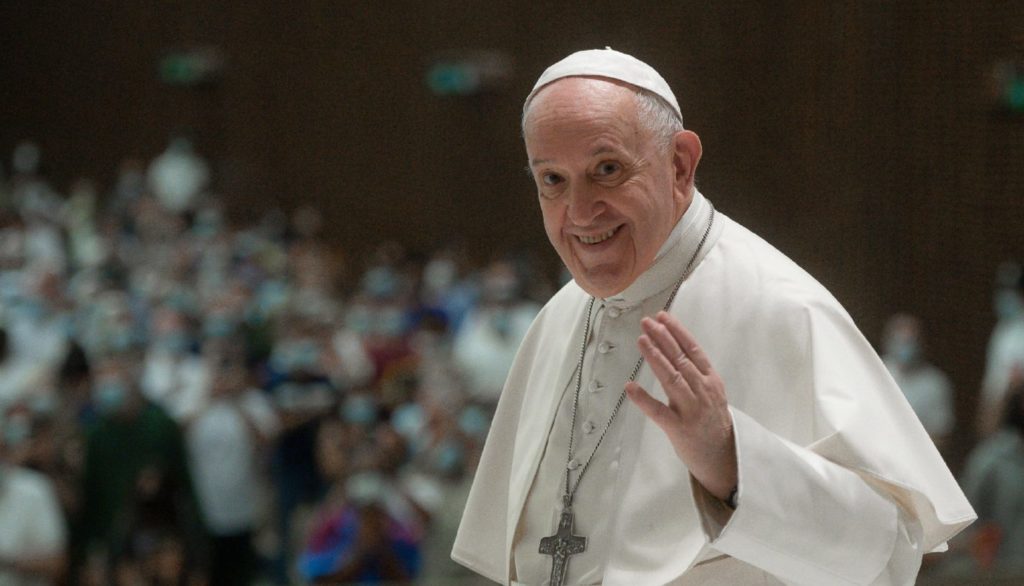Pope Francis focused today's audience on the episode in the Letter to the Galatians where St. Paul uses the term "hypocrisy." "The Letter to the Galatians," Francis began, "reports a rather surprising fact. As we have heard, Paul says that he made a correction to Cephas, that is, Peter, before the community of Antioch, because his behavior was not good. What had happened so seriously to oblige Paul to address himself in harsh terms even to Peter? Perhaps Paul had exaggerated, had left too much room for his character without knowing how to restrain himself? We will see that this is not the case, but that once again the relationship between the Law and freedom is at stake".
"Writing to the Galatians," continues the Pope, "Paul purposely mentions this episode that had happened in Antioch years earlier. He intends to remind the Christians of those communities that they absolutely must not listen to those who preach the need to be circumcised and thus fall 'under the Law' with all its prescriptions. The object of the criticism of Peter was his behavior in the participation at the table. A Jew was forbidden by the Law to eat with non-Jews. But the same Peter, in another circumstance, had gone to Caesarea to the house of the centurion Cornelius, even knowing that he transgressed the Law. Then he affirmed: 'God has shown me that no man is to be called profane or unclean'".
Francis paused at this point when St. Paul, in his reproach, uses a term that allows us to enter into the depths of his reaction: hypocrisy (cf. Gal 2:13). The observance of the Law on the part of Christians led to this hypocritical behavior, which the apostle intends to combat with force and conviction. What is hypocrisy? It can be said to be fear for the truth. One prefers to pretend instead of being oneself. Pretending prevents one from having the courage to speak the truth openly and thus easily escapes the obligation to always tell the truth, wherever and whatever. In an environment where interpersonal relationships are lived under the banner of formalism, the virus of hypocrisy spreads easily".
"In the Bible we find different examples in which hypocrisy is combated. A beautiful testimony is that of old Eleazar, who was asked to pretend to eat meat sacrificed to pagan divinities to save his life. But that man with fear of God answered: 'For at our age it is not worthy to pretend, lest many young men believing that Eleazar, at ninety years of age, has gone over to pagan customs, they too by my simulation and by my attachment to this brief remainder of life, go astray on my account and I bring stain and dishonor to my old age.'"
"The hypocrite," Francis concluded, "is a person who pretends, flatters and deceives because he lives with a mask on his face and does not have the courage to face the truth. For this reason, he is not capable of true love: he limits himself to living out of selfishness and does not have the strength to demonstrate his heart with transparency. There are many situations in which hypocrisy can be verified. It is often hidden in the workplace, where one tries to appear to be friends with colleagues while competition leads to beating them behind their backs. In politics it is not unusual to find hypocrites who live a split between public and private. Particularly detestable is hypocrisy in the Church. We should never forget the words of the Lord: "Let your language be 'yes, yes'; 'no, no'; for whatever comes from here is from the Evil One" (Mt 5:37). To act otherwise is to jeopardize the unity in the Church for which the Lord himself has prayed".








